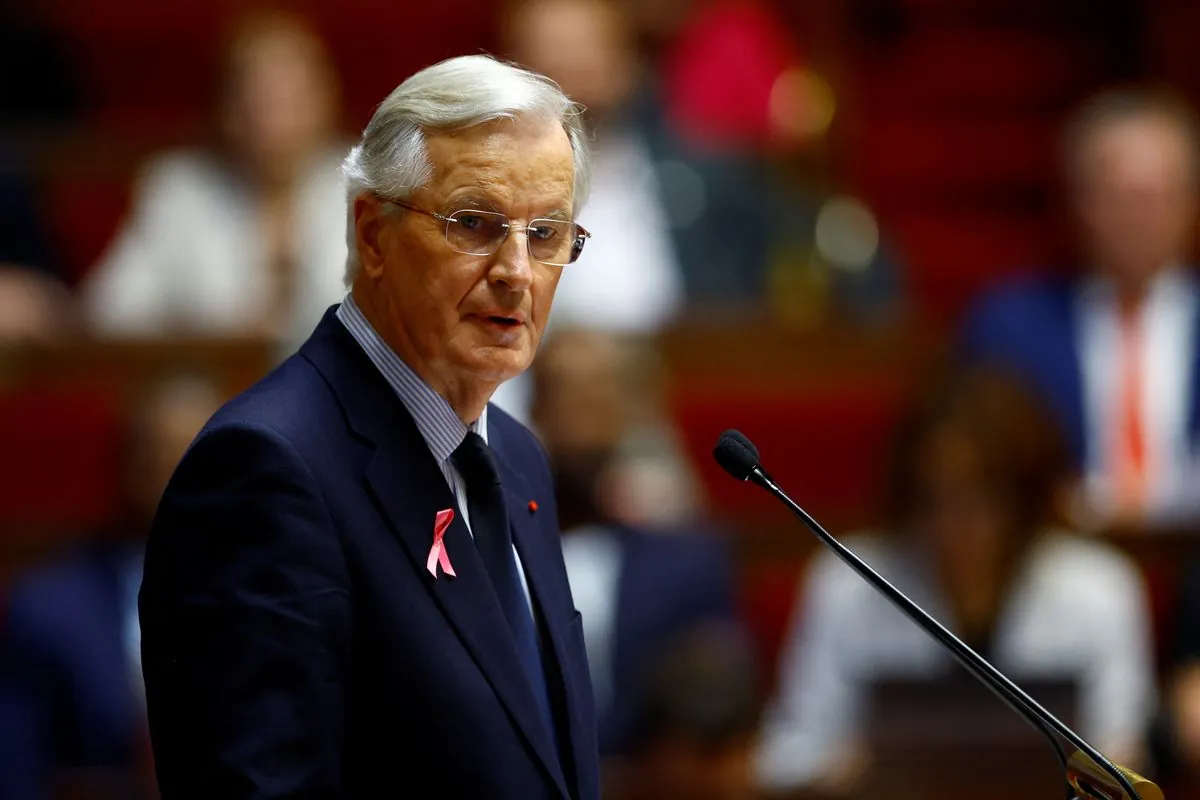French PM Barnier Calls for Stricter Immigration Control
French Prime Minister Michel Barnier emphasizes need for better border management in parliamentary address. Plans include following Germany's example and potentially revising bilateral agreements.

In a significant address to the French parliament on October 1, 2024, Prime Minister Michel Barnier highlighted the urgent need for improved border control, positioning immigration as a key priority for his government. This move comes amidst growing concerns across Europe about immigration management and the rising influence of far-right political parties.
Barnier acknowledged the current shortcomings in France's immigration policy, stating, "We are no longer managing to control our immigration policy in a satisfactory manner." He emphasized the importance of moving beyond ideological constraints to address the issue effectively.
The Prime Minister's speech reflects a broader European trend of tightening border controls. France intends to follow Germany's recent example of reinstating border checks within the European Union framework. In September 2024, Germany implemented temporary border controls with several neighboring countries, including France, to combat irregular migration and cross-border crime.

Barnier outlined France's intention to continue border checks "as long as it is necessary," while adhering to EU regulations. This approach aligns with the Schengen Agreement, which allows for temporary border controls under specific circumstances related to internal security or public policy.
The Prime Minister also indicated a willingness to revisit bilateral immigration agreements. He specifically mentioned the 1968 accord with Algeria, which grants special employment and movement rights to Algerian citizens in France. This agreement has its roots in the complex historical relationship between the two countries following the Algerian War of Independence, which ended in 1962.
Furthermore, Barnier suggested potential changes to visa policies, making them more contingent on countries' willingness to accept the return of their nationals whom France wishes to repatriate. This approach particularly targets some North African states and aligns with the European Return Directive, which sets common standards for returning non-EU nationals staying irregularly.
The Prime Minister's address reflects the ongoing challenges faced by European countries in managing migration. The European Union has implemented various measures to address these issues, including the establishment of Frontex in 2004 and the introduction of the European Agenda on Migration in 2015. These initiatives aim to enhance cooperation on asylum matters and improve border management across the EU.
France's approach to immigration control is particularly significant given its large Muslim population, estimated at around 5.7 million as of 2024, the largest in Western Europe. The country's policies must balance national security concerns with its commitments to international agreements and human rights standards.
As France moves forward with its plans to strengthen border control, it will need to navigate the complex landscape of EU regulations, bilateral agreements, and domestic political pressures. The success of these measures will likely have far-reaching implications for immigration policies across Europe and could influence the ongoing debate surrounding the concept of "Fortress Europe."
"France will continue, as long as it is necessary, to re-establish checks at its own borders, as EU rules allow and as Germany has just done."
This evolving situation underscores the need for a comprehensive and coordinated approach to migration management within the European Union. As countries like France and Germany implement stricter border controls, the effectiveness of systems such as the Schengen Information System (SIS) and the European Border Surveillance System (EUROSUR) will be put to the test.
The coming months will be crucial in determining the impact of France's new approach to immigration control and its potential influence on broader European migration policies.


































